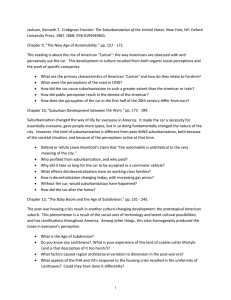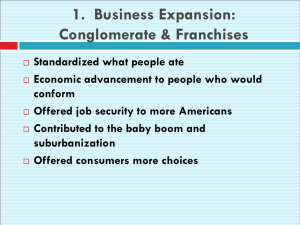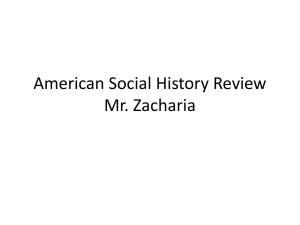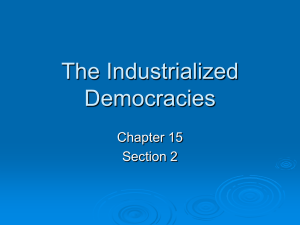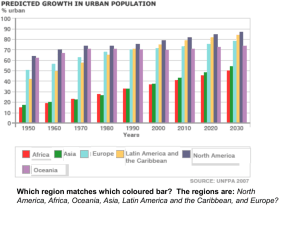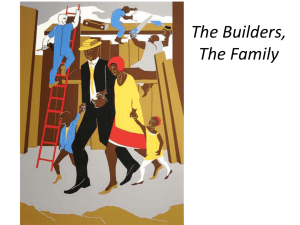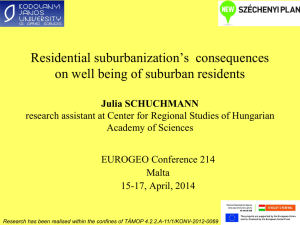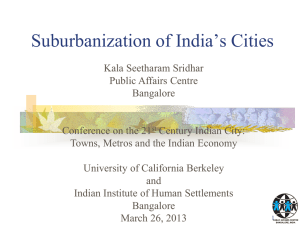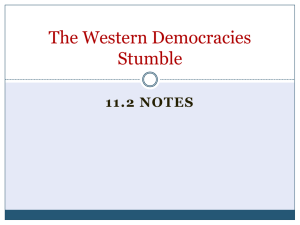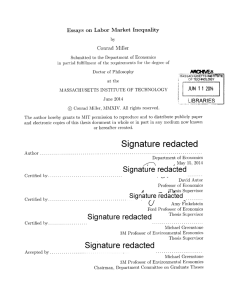Suburbanization - Cornell College
advertisement
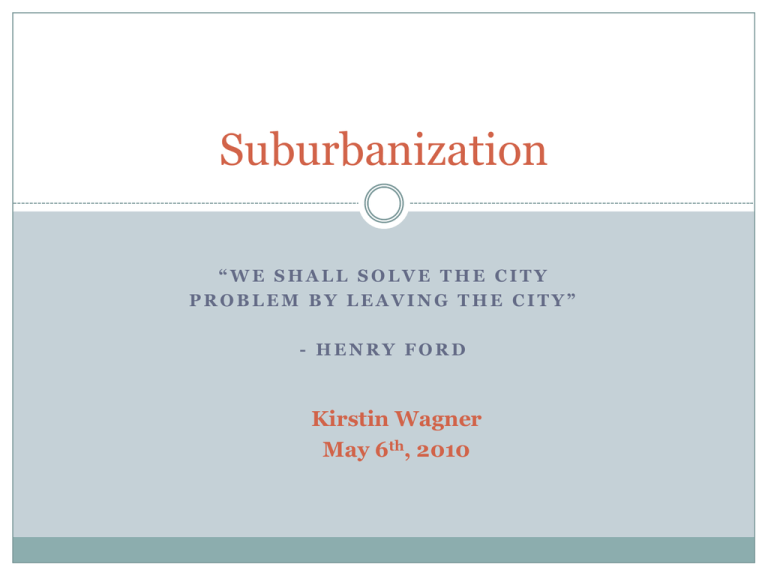
Suburbanization “WE SHALL SOLVE THE CITY PROBLEM BY LEAVING THE CITY” - HENRY FORD Kirstin Wagner May 6th, 2010 Independent Reading and Reporting “Large Builders, Federal Housing Programmes, and Postwar Suburbanization” Presented, 1978, annual meeting of the American Political Science Association Published, 1980, International Journal of Urban and Regional Research Barry Checkoway, Professor of Urban and Regional Planning, School of Social Work, University of Michigan Literature on Postwar Suburbanization Shift in consumer preferences suburbanization Judd and Swanstrom, pp. 134-146, “white flight” Consumers = primary actors in suburbanization Checkoway Large Builders Federal government programs Stimulation of suburban growth *Institutional actors* Lack of residential alternatives suburbanization becomes only logical choice for consumers Role of Large Builders Year New housing units started Percentage of houses built by large builders 1959 1,554,000 64% 1949 1,466,000 24% 1938 406,000 5% Use of mass production and prefabrication techniques cheaper, more efficient production greater profits Mass production requires large, inexpensive tracts of land suburban orientation Original Model* vs. Checkoway’s Model Postwar housing shortage Growing slums Racial/ethnic tensions Housing Acts of 1949 and 1954 *Judd and Swanstrom predominantly follow this model: 134-139, and 163-172 Postwar housing shortage Increase in size and number of large builders Organization of large builder interests into NAREB and NAHB Housing Acts of 1949 and 1954 Role of Federal Government Programs Housing Acts of 1949 and 1954: Stated aims: urban renewal and public housing (J & S) Reality: stimulation of suburbanization Continuous increase in FHA mortgage insurance Continuous decrease in public housing units authorization Relationship between builder interests and fed gov’t Builder size Revenues for fed gov’t “Economic soundness” considerations by FHA Take Home Lessons Suburbanization was caused not by shifting consumer preferences, but rather by the actions of large builders and the establishment of federal government programs which acted as an economic instrument to stimulate suburbanization. Suburbanization represented the only logical choice for consumers wishing to escape crowded city centers. The End THANKS FOR LISTENING
